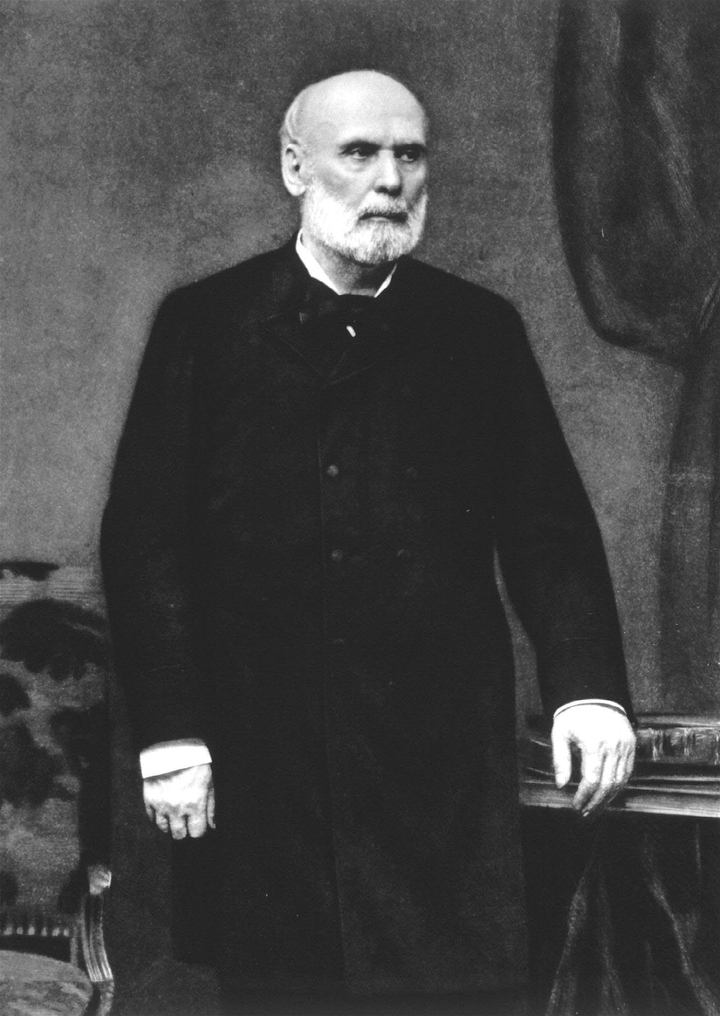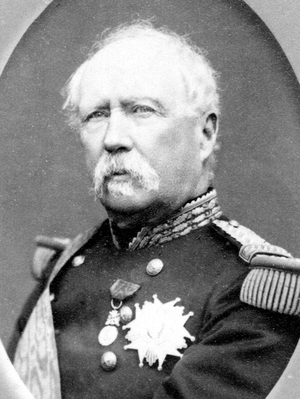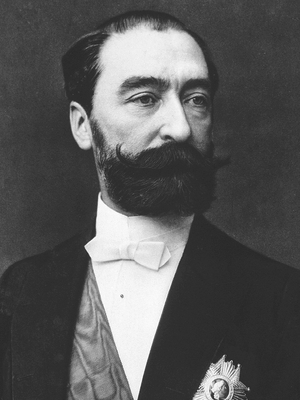
© Bibliothèque nationale de France. Diffuseur La Documentation française
15 August 1807
Jules Grévy was born in Mont-sous-Vaudrey (Jura), to a family with Republican beliefs.
After completing brilliant studies at the middle school Arc à Dole, he earned a degree in Law and became an attorney.
1836
He published a comprehensive book on legal expressions, Le Procédurier.
Under the July Monarchy, he defended people in political cases (the “Saisons” case in 1839 where the accused were charged with harming the security of the State).
1848
He married Coralie Fraisse, the daughter of a leatherworker of Narbonne, with whom he had a daughter, Alice.
He began his political career.
He was appointed Commissioner of the Republic in the Jura by the Government created after the Revolution of 1848.
April 1848
He was elected Deputy for the Jura.
He became famous, during the debates on the drafting of the Constitution, because he opposed to electing the President by universal suffrage. But the Grévy Amendment was dismissed.
4 April 1849
Jules Grévy was elected Vice-President of the Assembly.
2 December 1851
During a coup d’état, he was arrested, imprisoned in Mazas and then freed. He left political life and returned to the Bar.
1862
He was a member of the Paris Bar.
4 August 1868
He was President of the Bar Association.
1868
He returned to political life. He was elected Deputy for the Jura for another term.
1870
He opposed, with Thiers and Gambetta, the declaration of war and condemned the insurrection of the Paris Commune.
February 1871
He was elected President of the National Assembly and served until his resignation in April 1873.
1876
He was elected President of the Chamber of Deputies.
3 September 1877
Following the death of Thiers, for whom he gave the eulogy, he became the head of the Republican Party.
30 January 1879
President Mac-Mahon resigned and Jules Grévy was elected President of the Republic by the Congress at Versailles.
6 February 1879
He read a message before the Chambers where he explained his vision of the role of President: “Subject with sincerity to the great law of the parliamentary regime, I will never enter into battle against national wishes expressed by its institutional bodies”. Thus this limited interpretation of presidential prerogatives currently in force under the Third Republic was often referred to as the “Grévy Constitution”.
In domestic policy, his mandate was marked by anti-clerical measures. Despite his moderate beliefs, he allowed the Government Freycinet take two decrees in March 1880, one to break up the Jesuits, the other for mandatory registration of congregations.
In external policy, President Grévy showed great concern for peace, particularly vis-à-vis Germany, while it had to deal with the Boulanger Affair.
He had work be done to the Élysée Palace during his term-of-office. He had telephones and a winter garden installed and a clock hung in the main building.
1881
The marriage of his daughter with the Deputy, Daniel Wilson, was celebrated in the Élysée Palace, in presence of Jules Ferry, the groom’s witness, and Léon Gambetta.
December 1885
He was elected President of the Republic.
2 December 1887
He had to resign following a scandal when the trafficking of decorations was discovered involving his son-in-law, Daniel Wilson.
9 September 1891
He died in Mont-sous-Vaudrey.
also available
Presidents' biographiesUpdated : 15 December 2022

